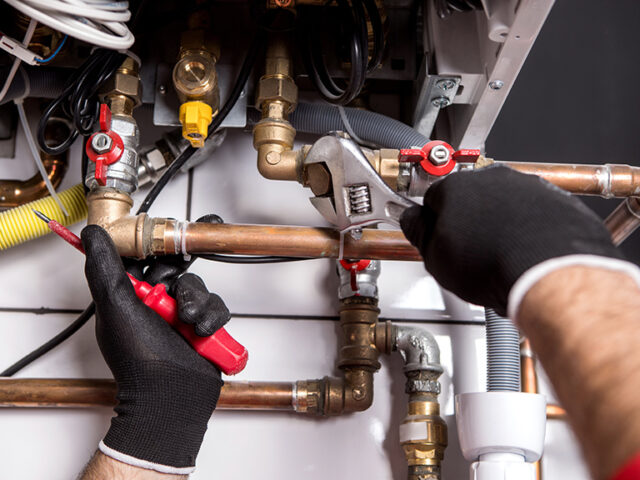
When faced with a plumbing issue, homeowners often grapple with a crucial decision: should they repair the existing plumbing or replace it entirely? This choice can significantly impact both your budget and the functionality of your home. In this blog post, we’ll explore the factors that influence the cost of plumbing repairs versus replacement, and provide guidance to help you make an informed decision.
Understanding the Basics
Plumbing Repairs: This involves fixing specific issues within your current plumbing system. Repairs might address leaks, clogs, or minor pipe damage. Typically, repairs are less expensive in the short term but may not address underlying problems.
Plumbing Replacement: This entails replacing old or damaged plumbing components with new ones. Replacement can include everything from installing new pipes and fixtures to overhauling an entire system. While the initial cost is higher, a full replacement might offer better long-term benefits.
Factors Influencing Costs
- Extent of Damage
- Repairs: If the damage is localized, such as a leaky faucet or a clogged drain, repairs are usually the more cost-effective solution. For instance, fixing a leaky pipe might cost between $150 and $500, depending on the complexity of the issue and labor rates in your area.
- Replacement: When damage is widespread—like in old or corroded pipes throughout your home—replacement might be necessary. Replacing a section of piping can cost anywhere from $500 to $2,000, while a full system overhaul might range from $3,000 to $10,000 or more, depending on the size of your home and the materials used.
- Age and Condition of Existing Plumbing
- Repairs: For relatively new plumbing systems, repairs might suffice, especially if the system was well-maintained and the issues are minor.
- Replacement: If your plumbing system is old and has frequent problems, replacement could be more cost-effective in the long run. Older systems might face ongoing issues that repairs cannot fully resolve, leading to repeated costs.
- Type of Plumbing Material
- Repairs: The cost of repairing various materials can differ. For example, repairing copper pipes is generally more expensive than repairing PVC pipes due to the cost of materials and the complexity of the job.
- Replacement: Upgrading to newer materials can be a significant investment. Copper and PEX (cross-linked polyethylene) are popular choices, with costs varying. For example, replacing pipes with PEX can range from $4 to $8 per linear foot, while copper can cost between $8 and $15 per linear foot.
- Labor Costs
- Repairs: Labor costs for repairs typically range from $45 to $150 per hour, depending on your location and the plumber’s expertise.
- Replacement: Labor costs for a full replacement are higher due to the scope of the work. Expect to pay $75 to $200 per hour for a comprehensive replacement job, which includes removing old pipes, installing new ones, and testing the system.
- Future Considerations
- Repairs: While repairs are often cheaper upfront, they might only provide a temporary fix. Frequent repairs can add up over time and might not address deeper systemic issues, leading to more frequent service calls.
- Replacement: Though more expensive initially, replacement can prevent future problems and often includes warranties. Newer systems are generally more efficient and can save you money on water bills and maintenance costs over time. If you are interested in learning more about plumber repair service, come and check their page for more info.

Making the Right Choice
- Evaluate the SituationAssess the current state of your plumbing system. If you’re dealing with minor issues, such as a slow drain or a leaky faucet, repairs might be sufficient. However, if you experience recurring problems or if your pipes are nearing the end of their lifespan, consider replacement.
- Get Multiple QuotesAlways seek estimates from several plumbers before making a decision. This will help you understand the cost differences and determine whether repair or replacement is the most cost-effective option.
- Consider Long-Term SavingsThink about the long-term implications. While replacement has a higher upfront cost, it can lead to lower maintenance costs and better efficiency. If your system is outdated, investing in a new one might save you more in the long run.
- Consult a ProfessionalA licensed plumber can provide valuable insights into the condition of your plumbing and recommend the best course of action. They can help you weigh the pros and cons of repair versus replacement based on your specific situation.
- Plan for EmergenciesSometimes, urgent repairs or replacements are necessary due to unexpected failures. Have a contingency plan and budget for emergency plumbing work to avoid stress and financial strain when issues arise suddenly.
Conclusion
Deciding between plumbing repairs and replacement involves weighing the immediate costs against potential long-term benefits. Repairs can be a quick fix for minor issues, while replacement offers a more comprehensive solution for aging or extensive systems. By considering factors such as the extent of damage, age of the plumbing, material costs, and future needs, you can make a more informed decision that best suits your home and budget.
Remember, no matter the choice you make, regular maintenance and timely attention to plumbing issues can help extend the life of your system and prevent costly problems down the line.




